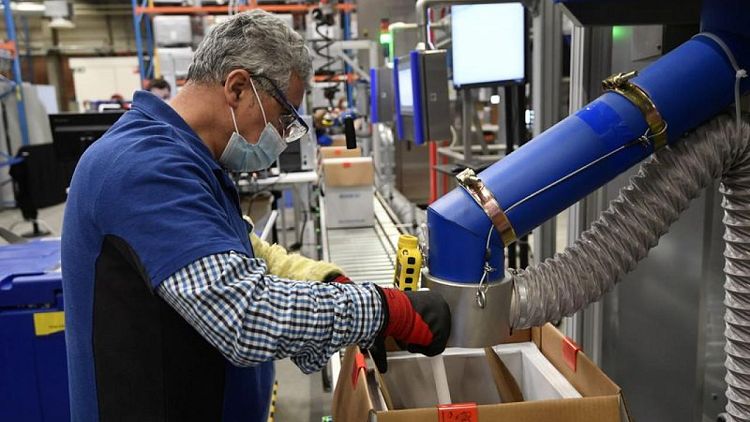By Philip Blenkinsop
BRUSSELS -The European Union submitted to the World Trade Organization on Friday a plan it believes will more effectively broaden supply of COVID-19 vaccines than the intellectual property (IP) rights waiver backed by the United States.
India, South Africa and dozens of developing countries are demanding an IP rights waiver for COVID-19 vaccines and other treatments to address what they say is a "staggering inequity" in access to global public goods.
A surprise U.S. shift in May to support a patent waiver heaped pressure on remaining opponents, such as the European Union and Switzerland that are home to many drugmakers.
The European Commission, which oversees trade policy for the 27-nation EU, said on Friday it had submitted an alternative, stressing limits on export restrictions and existing WTO rules allowing countries to grant licences to producers.
WTO members discussed a revised waiver proposal on Monday, their 11th meeting on the topic since an initial proposal in October, though still with no breakthrough. Another meeting is planned for next Tuesday and Wednesday.
The EU plan, which it says could be put into action much quicker, consists of three elements.
Export restrictions should be kept to a minimum. The EU has stressed it has exported more than 200 million vaccine doses, a level not matched by others such as the United States.
The EU would encourage vaccine makers and developers to enter licensing and manufacturing deals with producers in developing countries and pledge increased supplies to vulnerable nations, as Pfizer/BioNTech, Johnson & Johnson and Moderna have done.
Thirdly, the EU plan highlights existing WTO rules allowing countries to grant licences to manufacturers even without the consent of the patent-holder, although they would still receive compensation. Such licences should help ensure vaccines are available at affordable prices.
